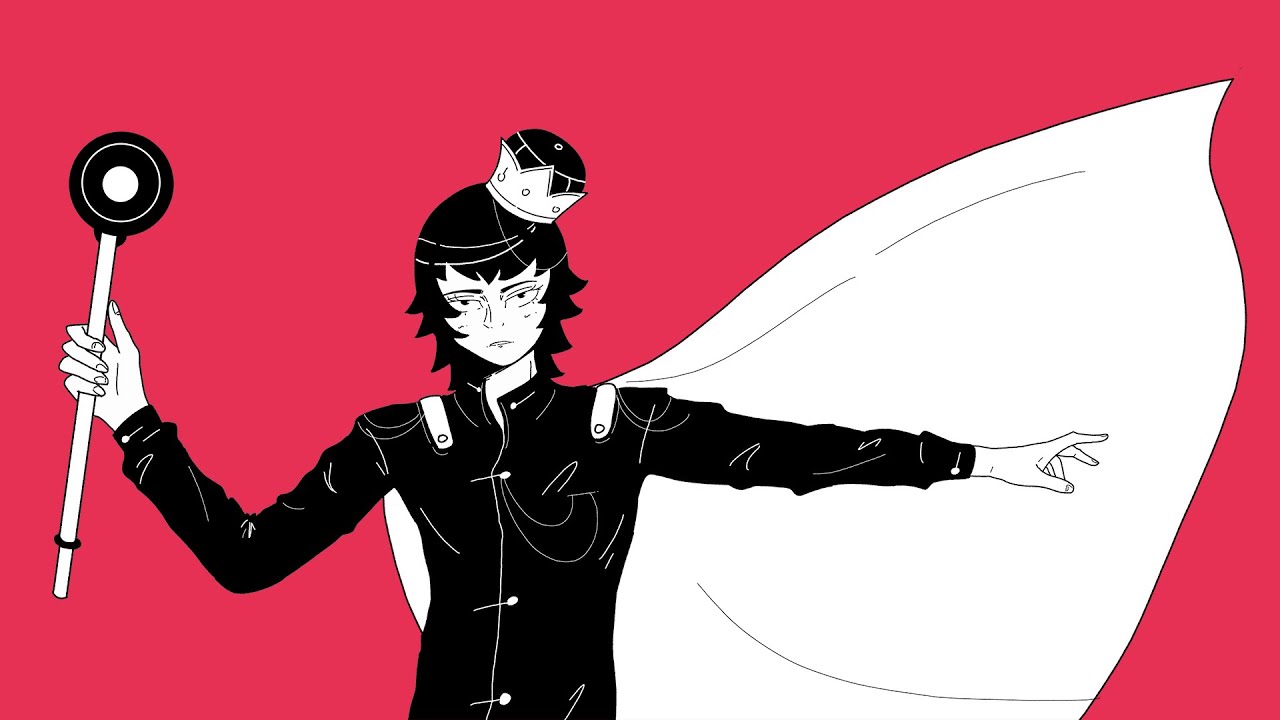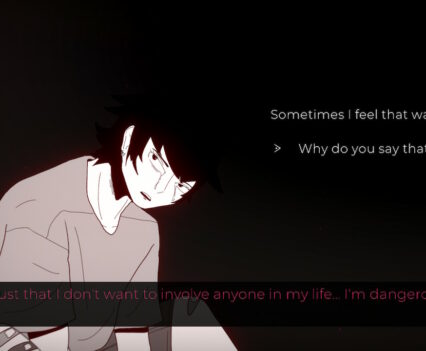As you begin Milky Way Prince – The Vampire Star, you are met with a warning detailing the serious themes of abuse and mental health that may be triggering for some. Topics that are typically left out of video games that fall into the visual novel and dating-sim genres.
The story opens with Nuki, a young man who loves looking up at the stars (and his starfish!) and a particular fairy tale called ‘The Milky Way Prince’. He comes across as incredibly lonely and seems like he needs something new and fulfilling in his life. We meet Nuki on the evening of what should be a meteor shower when something strange happens, and he witnesses a star crashing down from the night sky. Enter Sune. Nuki seems to instantly fall for this mysterious person, who he affectionately nicknames ‘Milky Way Prince’. What at first seems like a cutesy tale of two young men, turns into a pretty sour, controlling and – as the warning stated – abusive relationship through the actions of Sune.

The controlling behavior isn’t only displayed through dialogue. Like most, if not all, visual novels, you are provided with dialogue choices, and those choices impact the narrative. Early on in your relationship with Sune, some of these ‘choices’ fade away after a very short period of time, leaving you with only one choice – usually one that benefits Sune. This is a pretty cool mechanic to demonstrate the controlling nature and power that someone can have on your decision-making – something I imagine some can relate to.
Milky Way Prince – The Vampire Star is a visual delight and wholly unique in its aesthetic. It is incredibly minimalistic in its design, using a small handful of backdrops coupled with this moody, red style. Both Nuki and Sune are these monochromatic 2D designs that stand out from the aforementioned backgrounds. This creates a gorgeous and simple, yet melancholic design, perfectly matching the theme of the video game.
Whilst the visuals are great, they begin to wear off a little due to the lack of movement in longer periods of one conversation. Alongside this, the overall pacing is very slow and harms the impact that some areas of the story should have. Speaking of the story, the subject matter addressed is serious and compelling to a degree, however, the execution on many occasions is pretty underwhelming and doesn’t hit in the way I imagine developer Santa Ragione intended.
When you aren’t reading through the slow-moving text or selecting items in your apartment to comment on, you, err, have sex. This mechanic is different from the rest of the game where you are provided a wheel of senses that you can select from, and you are then described what you and Sune are up to via that sense. This section initially wasn’t clear to me at all. I didn’t realize that they were doing it, as the visuals describing the senses are very abstract, and it wasn’t until I read the text that follows that it clicked what I was choosing. Overall, this portion of the game was poorly presented.
Review: Milky Way Prince – The Vampire Star (Nintendo Switch)
Fair
Milky Way Prince – The Vampire Star is an artistically impressive visual novel that compliments the darker narrative and theme. A theme that is rare to come by, that many people will relate to on some level. Unfortunately, this narrative is presented with a lack of depth, and the slow pacing harms the user’s overall experience. Additionally, the ‘sex sense’ sections could have been presented far better, and just come across a little hollow.






